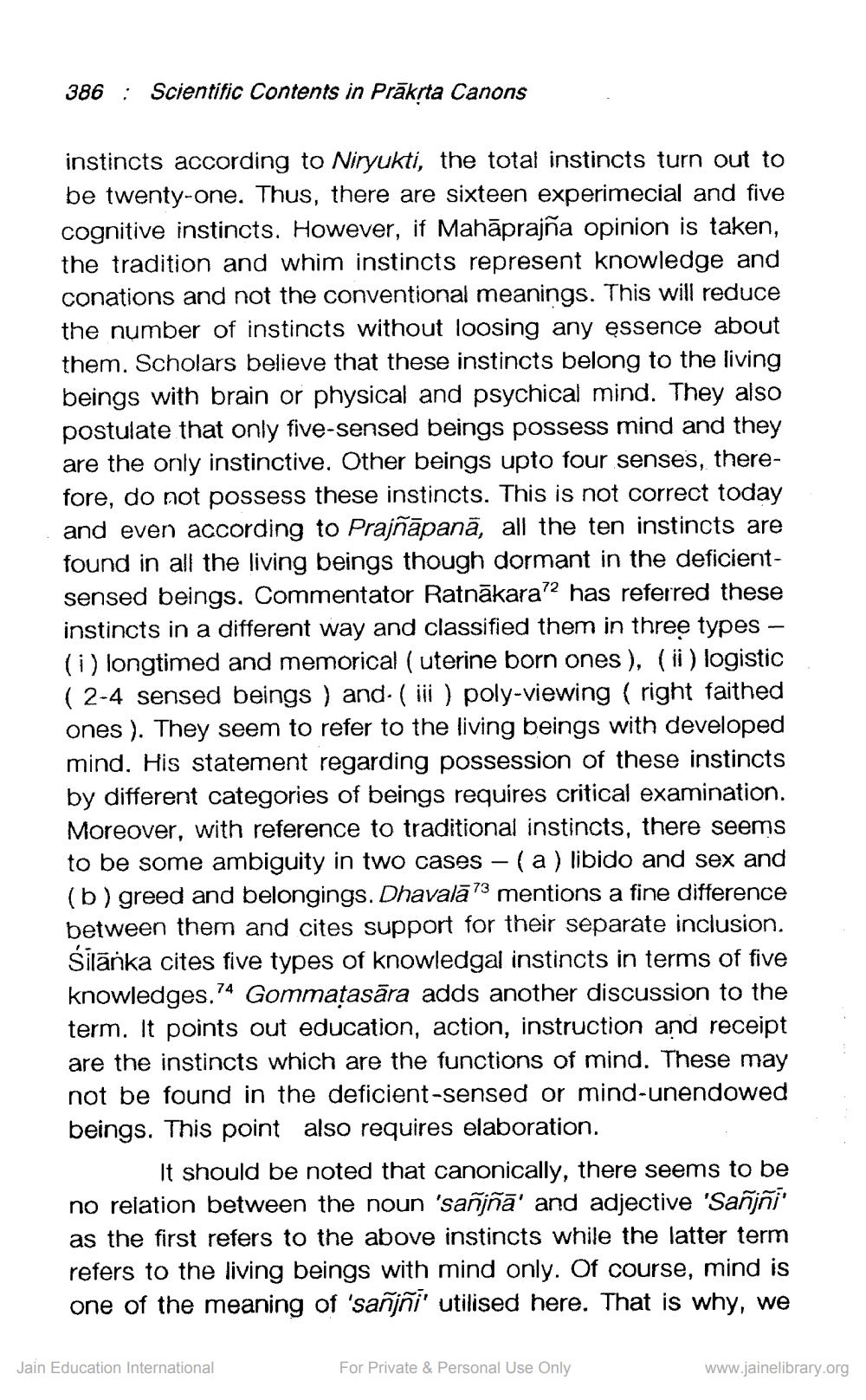________________
386 : Scientific Contents in Prākrta Canons
instincts according to Niryukti, the total instincts turn out to be twenty-one. Thus, there are sixteen experimecial and five cognitive instincts. However, if Mahāprajna opinion is taken, the tradition and whim instincts represent knowledge and conations and not the conventional meanings. This will reduce the number of instincts without loosing any essence about them. Scholars believe that these instincts belong to the living beings with brain or physical and psychical mind. They also postulate that only five-sensed beings possess mind and they are the only instinctive. Other beings upto four senses, therefore, do not possess these instincts. This is not correct today and even according to Prajñāpanā, all the ten instincts are found in all the living beings though dormant in the deficientsensed beings, Commentator Ratnākara72 has referred these instincts in a different way and classified them in three types – (i) longtimed and memorical ( uterine born ones ), (ii) logistic ( 2-4 sensed beings ) and ( ili ) poly-viewing ( right faithed ones). They seem to refer to the living beings with developed mind. His statement regarding possession of these instincts by different categories of beings requires critical examination. Moreover, with reference to traditional instincts, there seems to be some ambiguity in two cases - (a) libido and sex and (b) greed and belongings. Dhavalā 73 mentions a fine difference between them and cites support for their separate inclusion. Silānka cites five types of knowledgal instincts in terms of five knowledges.24 Gommatasāra adds another discussion to the term. It points out education, action, instruction and receipt are the instincts which are the functions of mind. These may not be found in the deficient-sensed or mind-unendowed beings. This point also requires elaboration.
It should be noted that canonically, there seems to be no relation between the noun 'saññā' and adjective 'Sañiñi' as the first refers to the above instincts while the latter term refers to the living beings with mind only. Of course, mind is one of the meaning of 'sanjñi' utilised here. That is why, we
Jain Education International
For Private & Personal Use Only
www.jainelibrary.org




